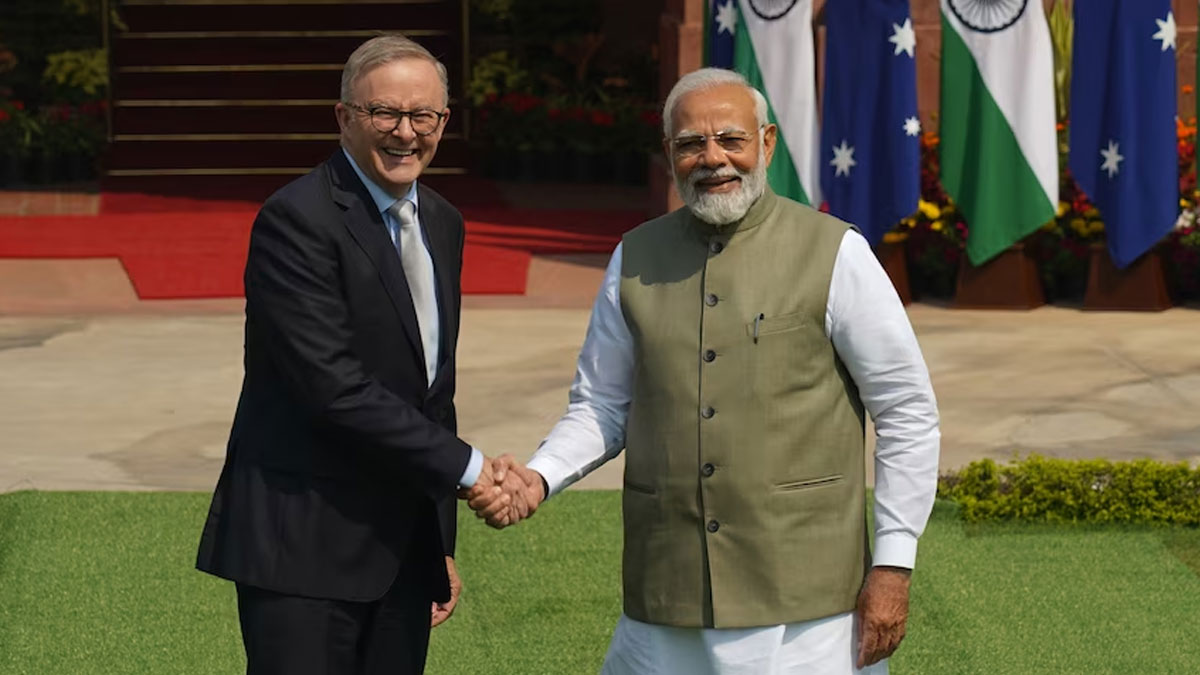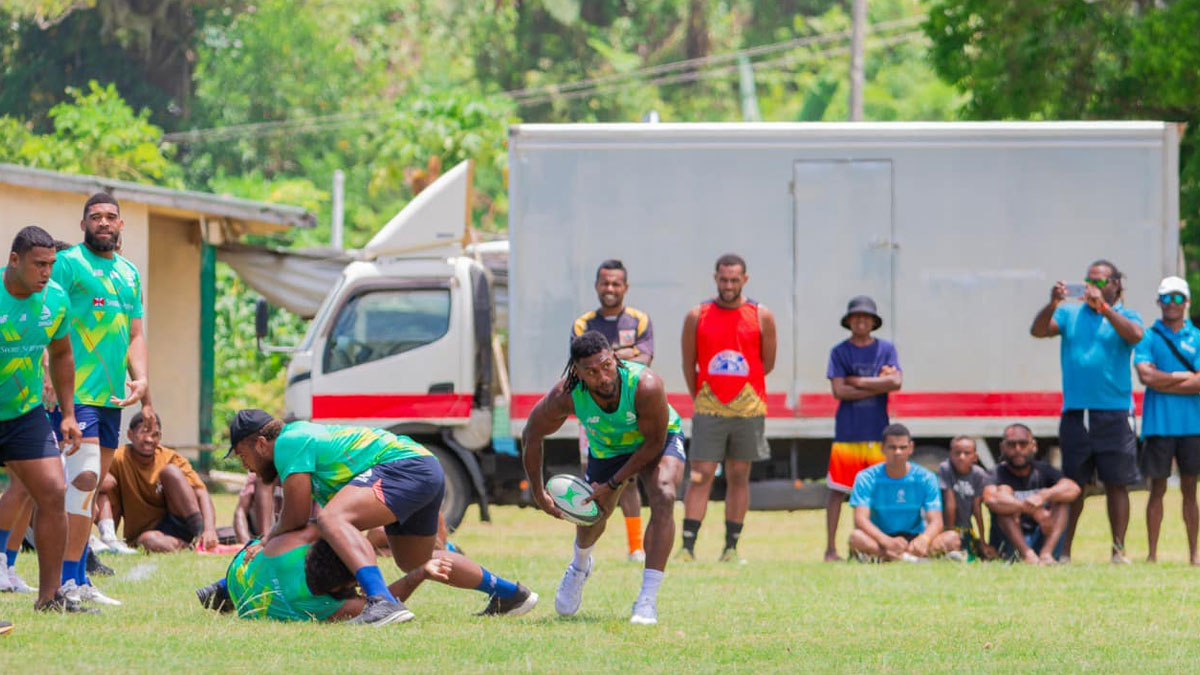
India's Prime Minister Narendra Modi has urged Australia to protect Hindu temples after several were vandalised during an international campaign by a Sikh separatist group seeking to form an independent state.
The comments were the only public sign of tension between the countries during Prime Minister Anthony Albanese's tour of India, which has been heavily amplifying the deepening relationship between the nations.
"It is matter of regret that there have been regular reports of attacks on temples in recent weeks in Australia," Mr Modi said at a joint press conference while standing next to Mr Albanese.
"Naturally these reports of temple attacks concern us all Indians. It is depressing for our hearts," he said.
"I shared our sentiments and concerns over the issue to Prime Minister Albanese and he assured me that the safety of the Indian community is a special priority for him."
Australia has become a staging point for the Khalistan movement, which seeks to create an independent state for Sikhs in northern India's Punjab region.
Pro-Khalistan Sikh activists have migrated to Australia, where temples have been defaced with anti-Hindu graffiti and brawls have broken out between the religious communities.
Attacks on Hindu temples in Melbourne
In January, three temples in Melbourne were targeted in the lead-up to a vote by Sikh Victorians in a non-binding referendum on the independent state, which led to a protest by members of pro-India groups at Federation Square.
Police deployed pepper spray during a small brawl between the rival groups at the protest.
US-based group Sikhs for Justice has been holding the referendums in countries with high Sikh populations, like Canada and Australia.
Australia's Sikh population has grown substantially in recent years, with the number of Sikhs in the country rising nearly 60 per cent between 2016 and 2021.
The Indian High Commission in Canberra has also been pressing Australian officials to stop the referenda from going ahead, arguing that pro-Khalistan groups have been stoking religious hatred and threatening India's territorial sovereignty.
That's forced Australian officials and politicians to walk a fine line, defending the rights of Khalistan supporters to hold protests and political gatherings, while stressing that Australia will not tolerate any violence or incitement of religious hatred.
During Mr Albanese's tour this week, Australia's High Commissioner to India, Barry O'Farrell, also stressed that the "so-called referendum" has no legal standing.
But pro-Khalistan activists say the main goal is to assess the demand for a separate state within India among the migrant Sikh population.
Roots of pro-Khalistan movement
The Modi government has banned Sikhs for Justice for running “anti-India activities”, and has classified it as a terrorist group.
The pro-Khalistan movement is being closely watched by the Indian government, after one of its members threatened to assassinate Home Minister Amit Shah.
The movement dates back to 1947, when the state of Punjab was split between India and Pakistan following British independence.
Throughout the years, the group's militancy has escalated in India.
In 1984, after members of the pro-Khalistan movement took over the Golden Temple in Punjab, the most sacred site in Sikhism, then Indian prime minister Indira Gandhi ordered their military removal.
One of the leading figures of the Khalistan movement, Jarnail Singh Bhindranwale, and more than 80 army personnel were killed during a 24-hour shoot out.
Four months later, Indira Gandhi was assassinated by two of her personal security guards, both Sikhs, in response to that military operation.
Leaders pledge to strengthen ties
The two prime ministers announced they will increase defence information sharing between their countries, especially in the maritime sector, in the latest strengthening of military ties.
They also signed agreements to dedicate government funding for film collaborations between India and Australia, as well as cooperation on solar and hydrogen technologies.
Delighted to meet my friend, PM @AlboMP in Delhi. Our talks focussed on diverse subjects including maritime cooperation, defence, renewable energy, trade and education. Key agreements were also signed today which will boost people-to-people ties between India and Australia. pic.twitter.com/JC97ehlZff
— Narendra Modi (@narendramodi) March 10, 2023
"I welcome significant and ambitious progress under the defence and security pillar of our relationship," Mr Albanese said.
"Prime Minister Modi and I discussed the increasingly uncertain global security environment and committed to strengthening the Australian-Indian defence and security partnership to address shared challenges and work towards an open, stable and prosperous Indo Pacific."
Mr Albanese said he hopes to see an "interim" free-trade agreement finalised by the end of the year.
The interim agreement has been ratified by both parliaments and offers zero-duty access to India for about 96 per cent of exports, while India has eliminated tariffs on 85 per cent of Australia's exports.
Story By: South Asia correspondent Avani Dias, foreign affairs reporter Stephen Dziedzic, and Som Patidar in New Delhi
Original Story Link: https://www.abc.net.au/news/2023-03-11/modi-calls-on-albanese-to-combat-attacks-on-hindu-temples-in-aus/102083152
Stay tuned for the latest news on our radio stations


